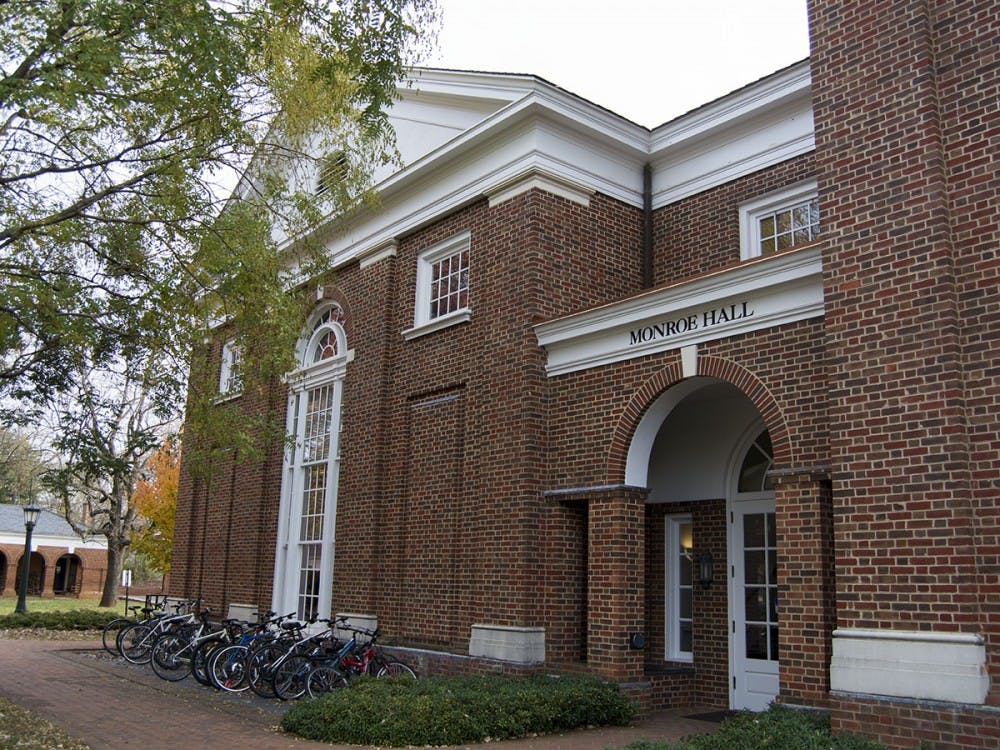At the University, students, specifically those enrolled in the College of Arts and Sciences, are encouraged to take a variety of courses in order to enrich their academic experience and foster a lifelong love of learning. For students in the College, this is achieved through the completion of area requirements where students are required to take classes in a variety of disciplines including math and science, fine arts and historical studies. However, this emphasis on a holistic liberal arts education is limited by restricting students to only one minor during their time on Grounds. The one-minor restriction directly conflicts with the goals of the College as outlined on their website, which highlights the College’s dedication to “exposing students to a wide range of subjects.” By exposing students to a breadth of subjects through area requirements, students ultimately develop interests in a variety of disciplines which they might in turn wish to explore further through either a major or minor. The one-minor restriction inhibits those students who wish to explore a multitude of disciplines, but do not have the time to complete a major in those areas.
Minors provide students the ability to concentrate on a subject they are interested in by completing 15 to 24 credits in that discipline. Often times students discover these fields of study while working through the College area requirements.The purported goal of the area requirements is exactly that — to spark intellectual curiosity in a variety of disciplines. The College believes that “a good liberal arts education must provide students with an extensive base of intellectual content and skills that enables them to explore ideas, evaluate evidence critically, draw reasoned conclusions and communicate one’s thoughts in a clear, coherent manner.” The area requirements serve as this base of intellectual content, propelling students to investigate further disciplines which are of interest to them. However, students cannot fully explore all areas of interest if they are not allowed to complete multiple minors during their time at the University.
The College and University as a whole are already hard at work readying students for the expanding workforce — students in the College have the opportunity to minor in fields outside of the College in the Commerce, Architecture and Engineering Schools. This allows students to not only expand their career options, but expand their interests outside of the liberal arts sphere. If students can minor outside of the College, then they should be able to complete multiple minors within the College.
The allure of a double major has become increasingly popular among students, not only because it allows them to delve into two areas of study, but also because it can provide expanded career options. However, double majors can be challenging to complete as each major requires over 30 credits. Many students enter the University with aspirations of completing a double major, but often fail to complete the requirement. For those students who are not only passionate inside the classroom, but engage in all that the University has to offer such as student self-governance, CIOs and engaging speaker series, it can be challenging to complete the required classes towards two majors. If a double minor was an option, these highly engaged students would certainly jump at the opportunity to broaden their academic interests.
The one-minor restriction does not necessarily preclude individuals from taking a variety of classes in a discipline which is of interest to them. However, it does bar students from taking upper-level classes which are often restricted to students who are a major or minor in that department. Students should be able to fully explore all their interests during their time at the University without being hampered by the one-minor restriction of the College. If students complete the required classes for a minor in multiple disciplines, then they deserve the recognition for that achievement. Beyond expanding their academic interests, the option of two minors can provide students with a competitive edge as they enter the workforce. The College recognizes the importance of diversity of knowledge and critical thinking skills developed through various course offerings with a liberal arts degree in an increasing competitive workforce — in their mission statement the College acknowledges that “such abilities are particularly important in a world in which knowledge and professions are changing rapidly, and the United States is increasingly part of a global social and economic network.” The one-minor restriction in the College limits those students who wish to broaden their knowledge in a variety of disciplines during their time at the University.
Mary Alice Kukoski is an Opinion columnist for The Cavalier Daily. She may be reached at opinion@cavalierdaily.com.







